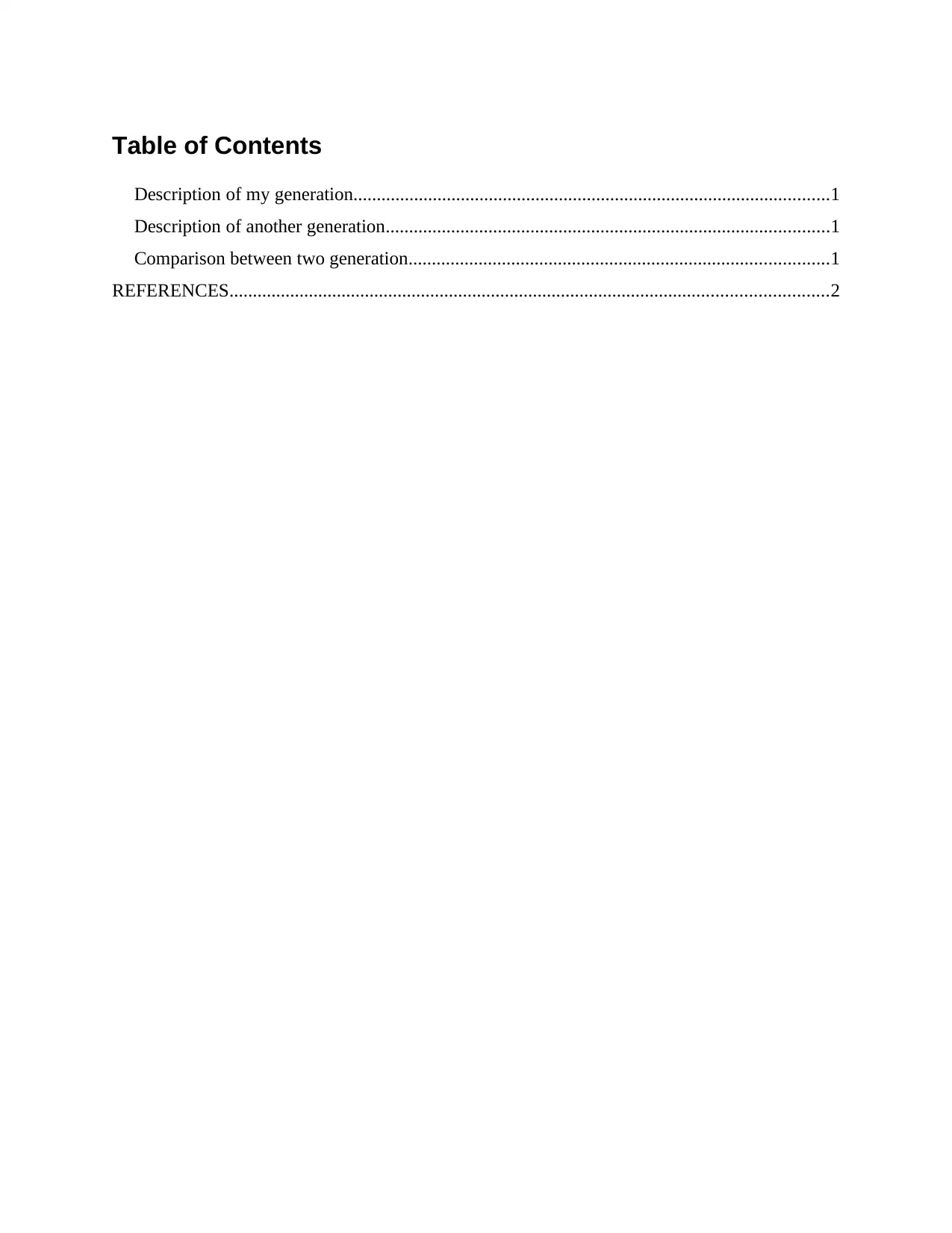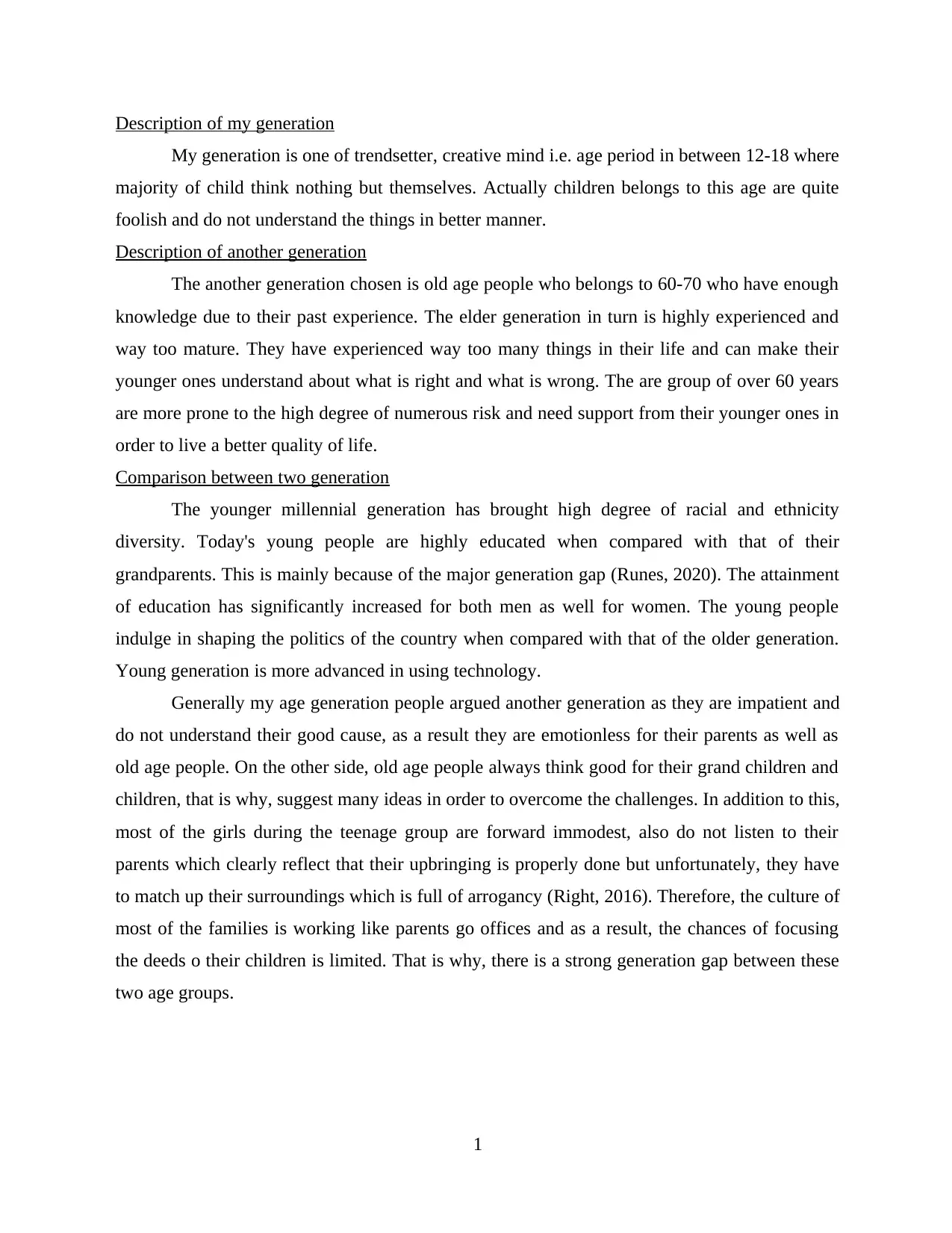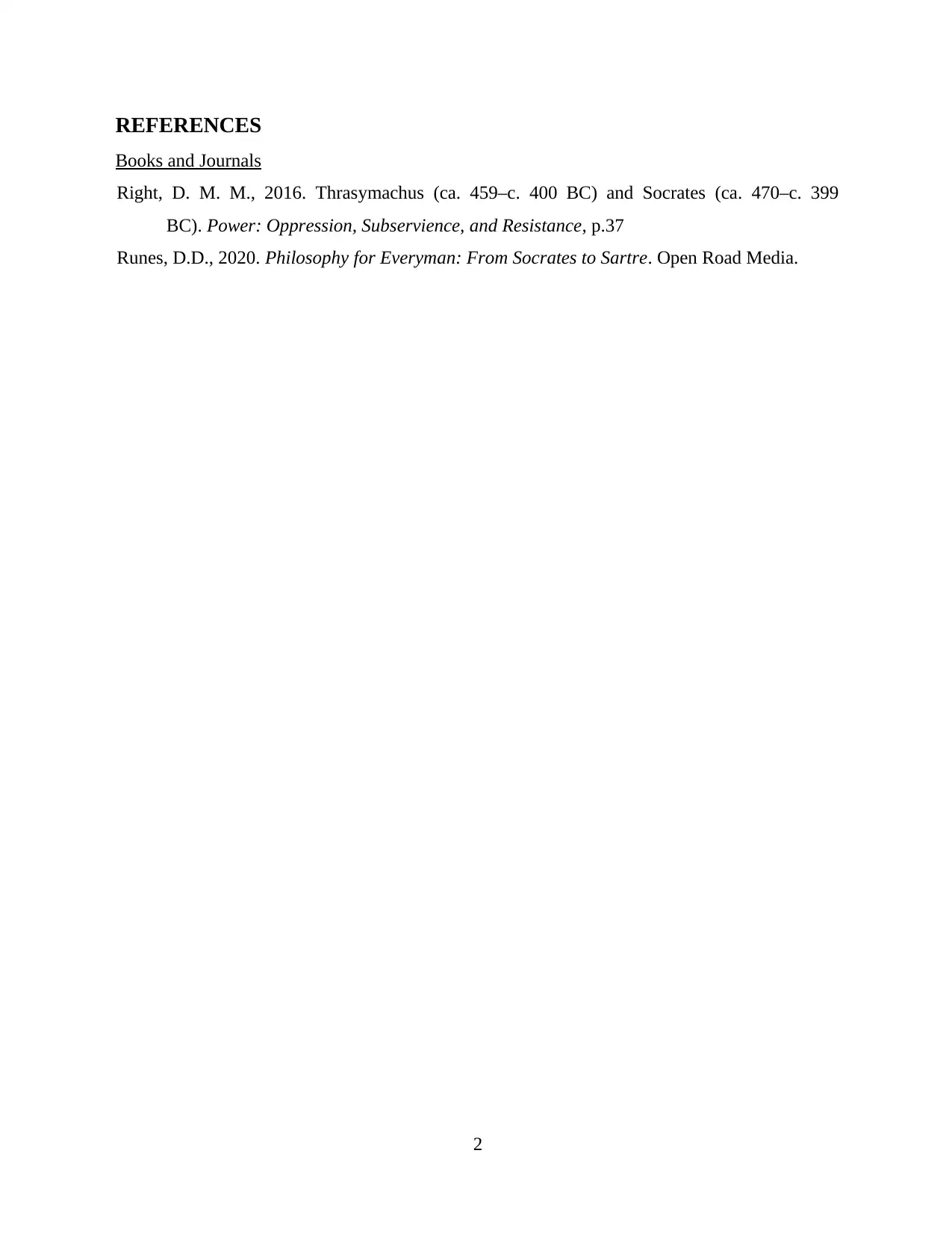Sociological Essay: A Generational Comparison of Teenagers and Elderly
VerifiedAdded on 2023/01/06
|4
|497
|84
Essay
AI Summary
This essay offers a comparative analysis between the younger generation (teenagers aged 12-18) and the older generation (individuals aged 60-70), highlighting the distinct characteristics, values, and societal roles of each group. It discusses the trendsetting and self-centered nature often associated with teenagers, contrasting it with the wisdom and experience of the elderly. The essay also explores the racial and ethnic diversity brought by the younger generation, their advanced education levels, and their engagement in shaping the country's politics. Furthermore, it addresses the technology gap between the two generations and the potential for misunderstandings and emotional disconnect. The essay concludes by emphasizing the importance of understanding and bridging the generation gap to foster better relationships and mutual respect, with the help of resources like Desklib for academic support and further exploration.
1 out of 4











![[object Object]](/_next/static/media/star-bottom.7253800d.svg)